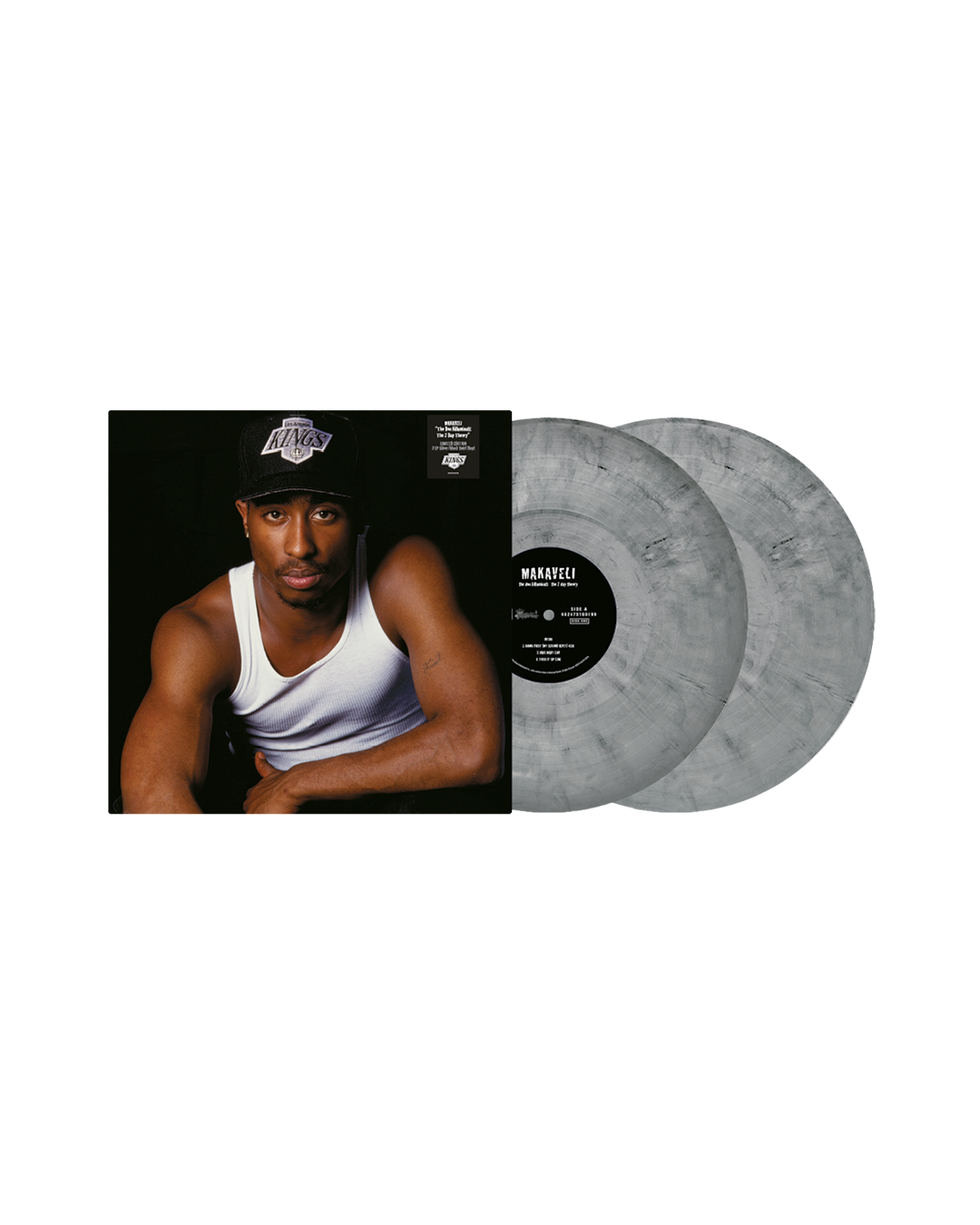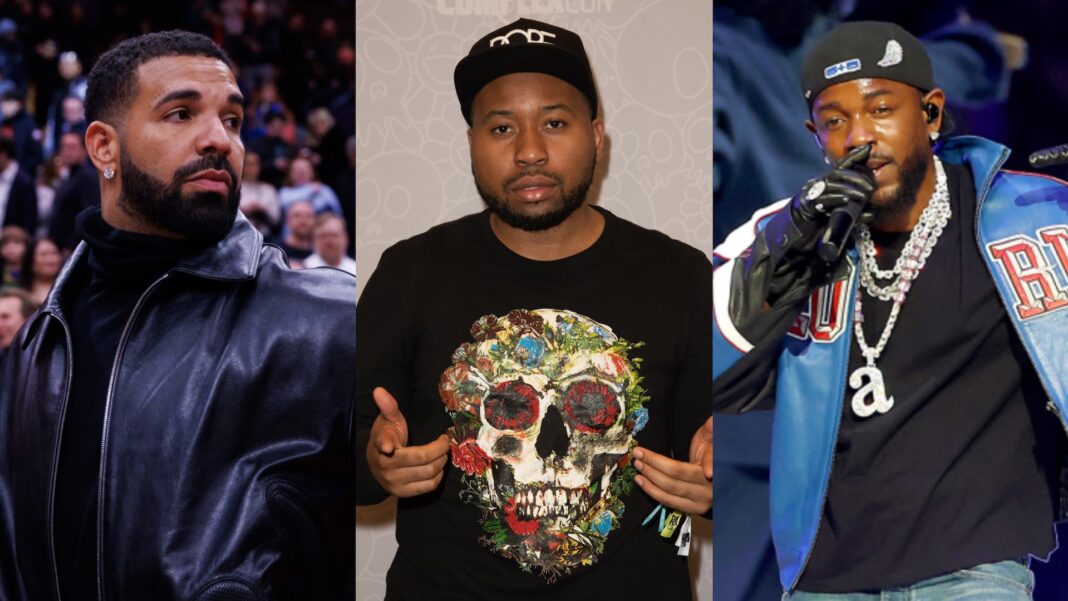The internet is abuzz with debate, and this time, the battleground is a Drake and Kendrick Lamar track. Renowned hip-hop commentator DJ Akademiks ignited a firestorm by claiming Drake’s influence on Kendrick Lamar’s chart-topping hit, sparking outrage and discussion among fans of both artists. Was this a genuine assessment of creative contribution, or is it yet another example of internet noise intended to stir the pot? In this article, we delve into Akademiks’ controversial statement, exploring the arguments both for and against his claim, and ultimately asking: did Drake truly play a pivotal role in the success of Kendrick Lamar’s latest smash?

Fan Reactions: Dissecting the Diverse Perspectives

Akademiks’ ranking ignited a firestorm of discussion on X, formerly known as Twitter. Fans flocked to his comments section, expressing a range of opinions, from fervent agreement to outright disagreement. Some users, like one who proclaimed, “Push ups was better than Not like us and Euphoria,” echoed Akademiks’ assessment, praising the lyrical prowess and flow of Drake’s track. Others, however, found his choices perplexing, questioning the prioritization of “Family Matters” over arguably more impactful tracks like “Not Like Us” or “Euphoria.” One user’s comment, “Having pushups over 6:16 in LA is wild,” encapsulates the sense of bewilderment that permeated the conversation.
The diverse reactions highlight the subjective nature of music criticism and how personal preferences significantly influence interpretations.
The Bias Conundrum: Examining the Potential Influence of Akademiks’ Alleged Association with Drake
Akademiks’ social media history, marked by frequent mentions of his “association” with Drake, fueled speculation about potential bias influencing his rankings. This perception is further amplified by the fact that he placed Drake’s “Family Matters” at the top, arguably overlooking the more commercially successful and culturally impactful “Not Like Us.”
While Akademiks attempted to justify his choices by emphasizing his focus on “quality, bars, not impact,” the association with Drake inevitably cast a shadow of doubt over the objectivity of his assessment. This raises a critical question: how can we, as consumers of music criticism, discern genuine analysis from potential personal biases?
Viral Moments: Exploring how Social Media Amplified the Conversation, including the Now-Iconic Akademiks “Euphoria” Reaction
The conversation surrounding Akademiks’ rankings extended beyond his X posts, transcending the confines of the platform and becoming a viral phenomenon. One particularly notable moment involved a user who juxtaposed Akademiks’ rankings with a video capturing his reaction to Kendrick Lamar performing “Euphoria” live. Initially appearing nonchalant, Akademiks’ demeanor shifted noticeably as the beat dropped, transforming into an enthusiastic grin as he began rapping along to Lamar’s diss track. This unexpected reaction, captured in a now-iconic video clip, further fueled the debate, highlighting the complexities of Akademiks’ apparent allegiance to both artists.
The virality of this moment underscores the power of social media in amplifying discussions and shaping public perception.
The Legacy of the Beef: Beyond the Rankings
The Cultural Impact: Assessing the Broader Influence of the Drake vs. Kendrick Rivalry
While the initial spark was ignited by Akademiks’ rankings, the conversation surrounding the Drake vs. Kendrick rivalry transcends the realm of music criticism. This back-and-forth exchange has become a cultural touchstone, reflecting broader societal discussions about competition, authenticity, and the evolving landscape of hip-hop.
The rivalry’s influence extends beyond music, permeating into fashion, language, and even online discourse. Social media platforms buzz with fan theories, comparisons, and debates, creating a virtual battleground where fans passionately defend their chosen artist.
The Evolution of Disstrack Culture: Examining how the Beef Reflects Changing Trends in Hip-Hop
The Drake vs. Kendrick beef exemplifies a significant shift in disstrack culture. In the past, diss tracks were often characterized by explicit personal attacks and veiled threats. The contemporary iteration, exemplified by this rivalry, tends towards more nuanced lyrical sparring, with both artists leveraging wordplay, storytelling, and social commentary to make their points.
This evolution reflects a growing sophistication within hip-hop, where artists are increasingly utilizing their platform to address societal issues and engage in thoughtful discourse.
Looking Ahead: Speculating on Future Collaborations or Confrontations
Despite the intensity of the rivalry, the door remains open for future collaborations or even a truce. Both Drake and Kendrick Lamar have demonstrated their willingness to work with artists from different backgrounds and perspectives, suggesting that a joint project might not be entirely out of the question. Given their undeniable talent and influence, such a collaboration would undoubtedly create a seismic impact on the music industry.
However, the competitive spirit that fueled the beef may also lead to future confrontations, further solidifying their positions as titans within the hip-hop landscape. As the rivalry unfolds, it will be fascinating to witness how it shapes the future of hip-hop and the evolving dynamic between these two musical powerhouses.
Conclusion
So, there you have it: Akademiks declaring Drake’s verse on Kendrick Lamar’s “Kung Fu Kenny” the anthem, igniting a firestorm on social media. This debate, while seemingly simple on the surface, speaks volumes about the complex dynamics of hip-hop culture. It highlights the subjective nature of musical appreciation, where personal preference often trumps objective analysis. It also exposes the power of online platforms to amplify voices and spark passionate discussions, sometimes bordering on the contentious.

